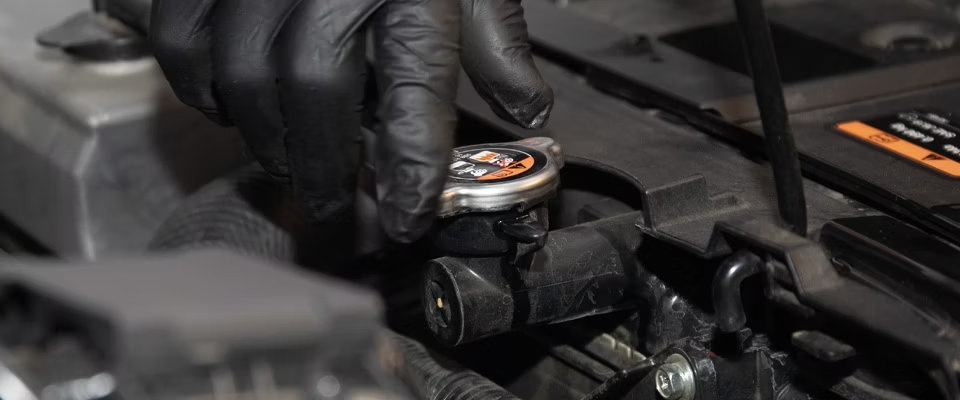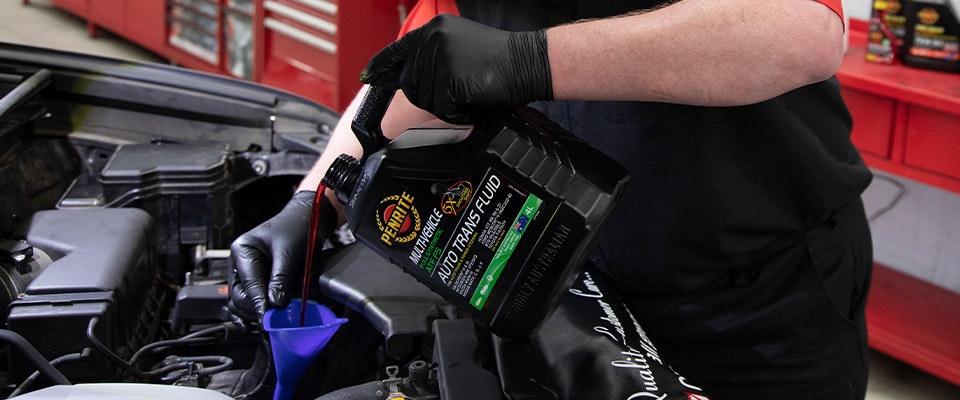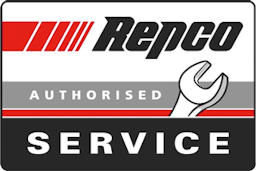
Radiator flush, repairs and servicing
Overheating vehicles aren't just caused by hot weather, your engine gets hot (really hot) and it's the radiator and cooling system's job to stop your car from being damaged by all that heat. Coolant also prevents liquids from freezing and protects the system from corrosion as well.
You never want to find yourself broken down on the freeway with steam pouring from under the bonnet.
Does my car need a radiator flush?
As well as an overheating car, a temperature gauge that's reading hotter than normal or a car leaving puddles behind means it is best to have your cooling system checked out. A radiator flush might be just what your car needs to bring it back to peak performance.
If you're noticing these things in your car, come and see the team at Automotive Instincts.
Our qualified mechanics will perform a radiator flush, using a fluid designed to clear out any build up. Once the cooling system is cleaned, the cleansing fluid is removed and the coolant is replaced. Your car's cooling system will be running like a dream:
What are the benefits of a radiator flush?
- Your radiator will be more reliable and live longer
- Your engine will be more efficient and have an increased life expectancy
- It can boost your vehicle's performance and power
- The water pump will last longer due to better protection and lubrication
How often should I get a coolant system flush?
Your vehicle's log book will outline how often your cooling system should be flushed. Most of the time, it is suggested that you have your coolant flushed every two years or 40,000 km's depending on which comes first. However, the size of your engine, local weather conditions, the age of your existing coolant, and the total amount of kilometres driven can all have an effect on how often you should replace the coolant in your radiator.
At Automotive Instincts, you can request a full 65 Point Vehicle Inspection Report for free as part of any Minor, Major or Log Book service on your vehicle. This includes checking the coolant in your system and our written report will outline if we recommend a radiator flush, coolant replacement or any other repairs to maintain the safety and performance of your vehicle.
If I don't get a radiator flush - what happens?
With time, rust and scale deposits accumulate and the whole system can become jammed up and not as effective at cooling and protecting your car. This build up of rust and debris can damage components of your cooling system, including your water pump, radiator, hoses and thermostat, reducing their life expectancy and possibly leading to expensive repairs in the future.
Can I flush the radiator myself?
While there are many sites and DIY guides offering advice on how to flush a radiator yourself - we don't endorse it.
Modern vehicles can be complex and mistakes like incomplete flushing or changing the coolant in your vehicle without flushing can cause more particles to move around and blockages in your thermostat or radiator. It is wise have your systems checked regularly by a qualified mechanic, and properly flushed before being refilled with the recommended coolant type, with the system purged of any air pockets and then rechecked to ensure everything is in full working order. This is the best way to prevent any costly breakdowns in the future.
Radiator coolant is toxic and needs to be handled very carefully. It is also very sweet smelling which can be attractive to children and some pets, so proper storage is very important. Having an expert take care of this task takes away the risk of handling or having dangerous chemicals around your house. Dangerous coolant also needs to be disposed of in the correct way and professional workshops can have the coolant recycled or properly disposed of to help save the environment.

Related articles


Automotive Fluids
The fluids in your car are very significant - they lubricate, cool, clean and protect some very costly components of your vehicle, learn a bit more about them and why having them regularly checked is important.
Read more
Automotive Instincts - Our expertise & knowledge
As a Repco Authorised Service centre, we use quality parts and lubricants and employ state of the art diagnostic equipment and repair methods.
Read more
